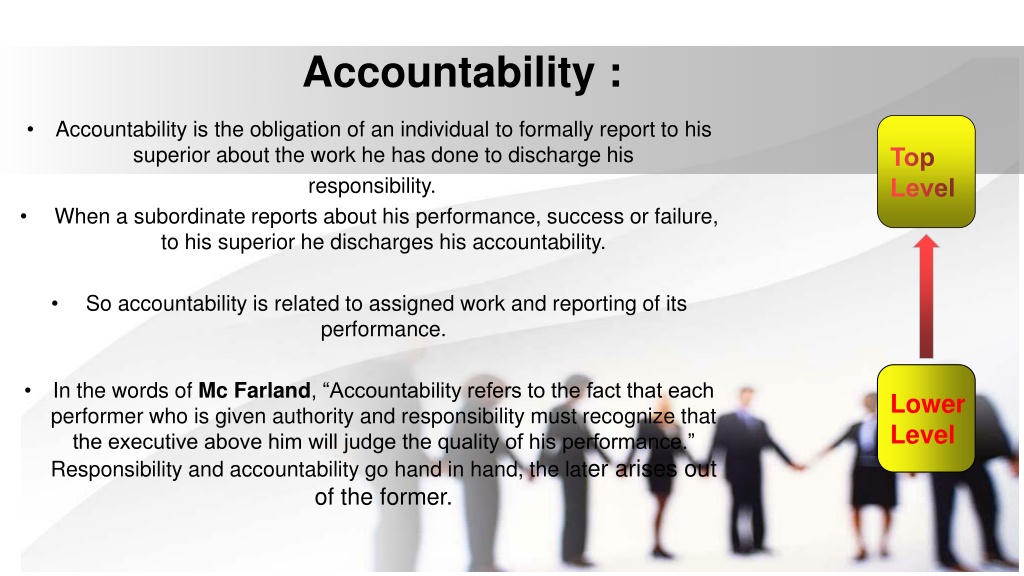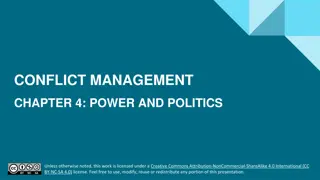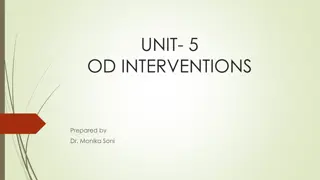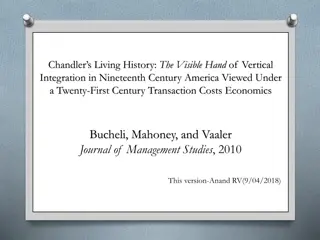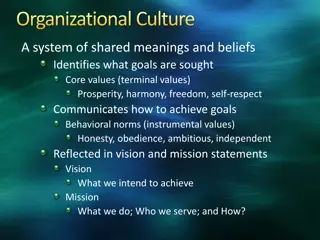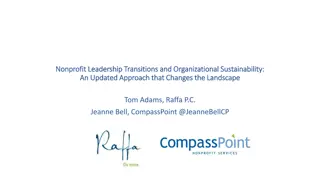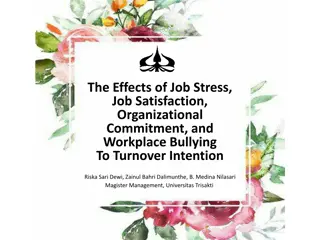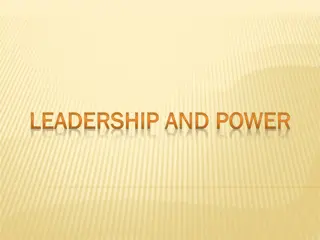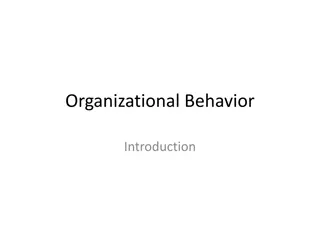Understanding Accountability and Power in Organizational Dynamics
Accountability is the obligation of individuals to report to their superiors about their work performance and outcomes. It cannot be delegated, always flows upward, remains unitary, and has specific standards. Power, on the other hand, is the capacity to influence others' behavior and may not always correlate with authority. Managers' power is measured by their ability to promise rewards, threaten punishment, or withdraw rewards. Both accountability and power play crucial roles in organizational dynamics.
Uploaded on Oct 07, 2024 | 0 Views
Download Presentation

Please find below an Image/Link to download the presentation.
The content on the website is provided AS IS for your information and personal use only. It may not be sold, licensed, or shared on other websites without obtaining consent from the author. Download presentation by click this link. If you encounter any issues during the download, it is possible that the publisher has removed the file from their server.
E N D
Presentation Transcript
Accountability : Accountability is the obligation of an individual to formally report to his superior about the work he has done to discharge his responsibility. When a subordinate reports about his performance, success or failure, to his superior he discharges his accountability. Top Level So accountability is related to assigned work and reporting of its performance. In the words of Mc Farland, Accountability refers to the fact that each performer who is given authority and responsibility must recognize that the executive above him will judge the quality of his performance. Responsibility and accountability go hand in hand, the later arises out of the former. Lower Level
Nature of Accountability : 1. Cannot be delegated 2. Always Upward 3. Unitary 4. Accountability Standard
Nature of Accountability : 1. Cannot of Accountability : Accountability cannot be delegated to anybody else even though the work may be done by a subordinate. A person remains accountable to his superior for the work given to him. 2 . Always Upwards : Authority always goes downwards and accountability goes upwards. A subordinate remains accountable to the boss above him.
Nature of Accountability : 3 . Unitary : Accountability is always unitary. A subordinate should be accountable to only one boss. In case he is made accountable to more than one boss there will be a confusion and friction. Different bosses may give their own orders and expect different performances. So it is essential that a subordinate is accountable to only one boss.
Nature of Accountability : 4 . Accountability Standards : The responsibility and accountability should be precisely fixed so as to see whether the assigned task is completed or not. There should be specific standards for judging the accountability.
Power : Power is the capacity to influence the behaviour of others. Power is not necessarily the corollary of authority. A person may not have an authority but still he can yield power. In fact, authority is the right to command whereas power is the capacity to command. A rich person may yield power because of his financial resources. A person having power has the ability to change the attitude of others. In the words of Hicks and Gullet, Manager s power in an organization may be seen as the ability to cause subordinates to do what the manager wishes him to do.
A managers power may be measured in terms of the ability to: I. II. Promise rewards III. Threaten to withdraw current rewards IV. Withdraw current rewards V. Threaten punishment VI. To punish Give rewards In this sense power is exercised not only to give benefits to a person for behaving in a particular manner but also for withdrawing the benefits already given if he does not follow the commands.
Sources of Power : There are following sources of power : 1. Legitimate Power : This power corresponds authority. When a person is lawfully entitled to exercise power over the other it is called legitimate power. The influences has the authority to influence the behaviour of the other person.
Sources of Power : 2 . Reward Power : When a person has the power to give rewards to others for behaving or doing what the influence wants them to do, it is reward power. Since people can benefit by obeying the power of the person, they will fall in line. 3 . Coercive Power : Coercive power implies non-physical punishments. The influences has the power to punish a subordinate for not carrying out orders or for not meeting requirements.
Sources of Power : 4 . Expert Power : When a person has an expert knowledge of some kind or he is a specialist in a particular case then one can influence the behaviour of others. A doctor has expert power on his patients. A production manager may yield influence on his subordinates because of his vast experience and expertise in a specific manufacturing field. Thank you
